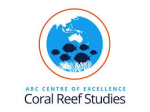CGIAR Research Program on Fish Agri-Food Systems - FISH
Leader Philippa Jane Cohen, WorldFish - WF
Coleader: Alexander Tilley, WorldFish - WF
Team
members: 27
Partner
organizations: 7
Budget 2025
USD :
0
Activities/Products: 5
Description
The cluster focuses on coastal systems of Solomon Islands, Myanmar, Bangladesh, and scaling country of Timor-Leste (with activities and investment to be determined in Philippines and Cambodia) with an emphasis on developing, refining and scaling management, fishing technology and livelihood innovations. These countries demonstrate high levels of livelihood, food and nutrition security dependence on coastal systems and a policy environment (consistent with trends throughout the broader Asia-Pacific region) that strongly promotes decentralized co-management. The opportunity is to increase the performance of co-management models to realize productivity, food security and poverty alleviation potential (Activity 1.1). Simultaneously, this requires a strong focus on situating co-management (with its strengths and limitations) within a range of management, governance and livelihood innovations responsive to contemporary challenges (e.g. demographic change, competition for and limits of fisheries resources and climate change) (Activity 1.2). Improved opportunities for fishers to generate income, maximise benefits from ecosystem services and strengthen livelihoods and resilience will be tested within fisheries value chains and, where appropriate, through complementary livelihoods outside the sector (Activity 1.3). To achieve impact at scale, innovations are spread through learning and governance networks – yet simultaneously this Cluster will challenge and progress the dominant narrative and narrow understanding of scaling as “dissemination of technologies” – and will build an understanding of scaling of processes, principles, governance norms and develop response or adoption typologies and outcomes. To ensure innovations are relevant, legitimate and effective, they are developed and taken up through partnership with governments, regional bodies, development agencies and civil society.
Atlas
Key Results
Blog Outcome Impact Case Report Policy
Innovations
Activities/Products
Projects
| Acronym | Project Title | Year | Section | Leader | Center | Budget | Start Date | End Date | View |
|---|
Outcomes and Impact
| Code | Outcomes and Impact | Type | Indicators | View | |
|---|---|---|---|---|---|
| 001 | Aquatic systems more sustainably managed and equitably managed | development outcome | 1 | ||
| 002 | Improved opportunities and performance of fish based livelihoods for men and women | development outcome | 2 | ||
| 003 | Food and nutrition security improved within and through SSF food systems | development outcome | 3 | ||
| 004 | Public sector, development agencies and investment policies enable resilient SSF | development outcome | 0 | ||
| 006 | Wider adoption of enhanced management models and livelihoods solutions | research outcome | 0 | ||
| 007 | Innovation spread and supported through learning and governance networks | research outcome | 0 | ||
| 008 | Increased capacity of national and regional institutions to implement SSF-supportive policies | research outcome | 0 | ||
| 009 | Food security, fisheries, environmental polices transformed explicitly account for SSF | research outcome | 0 |
Personnel Involved
Partners










Jan.JPG)




.png)


.jpg)









